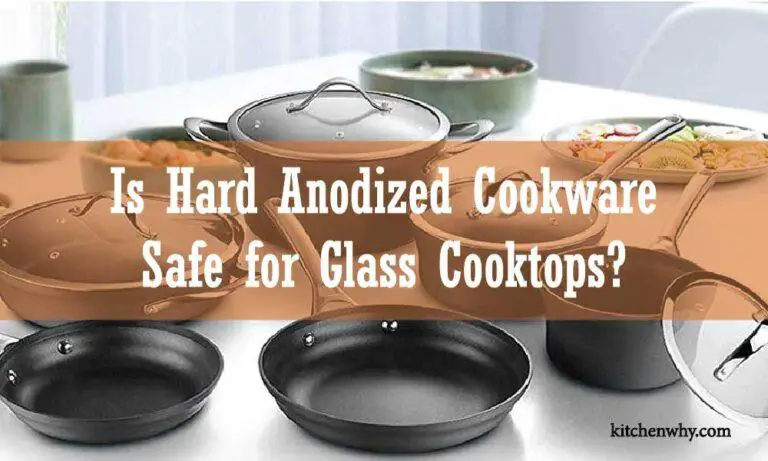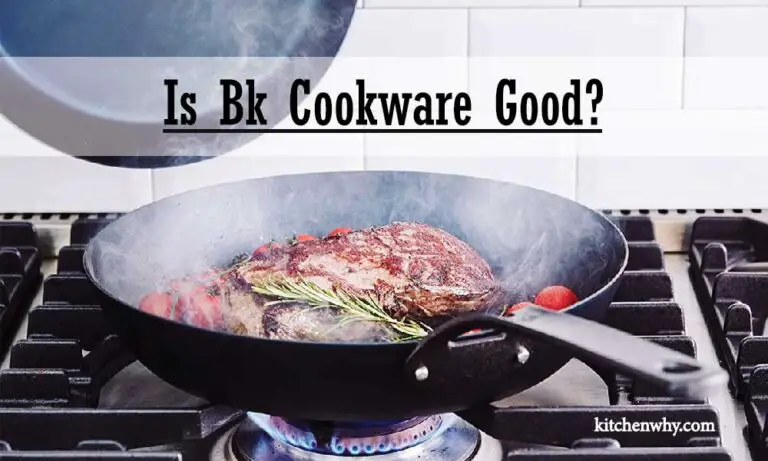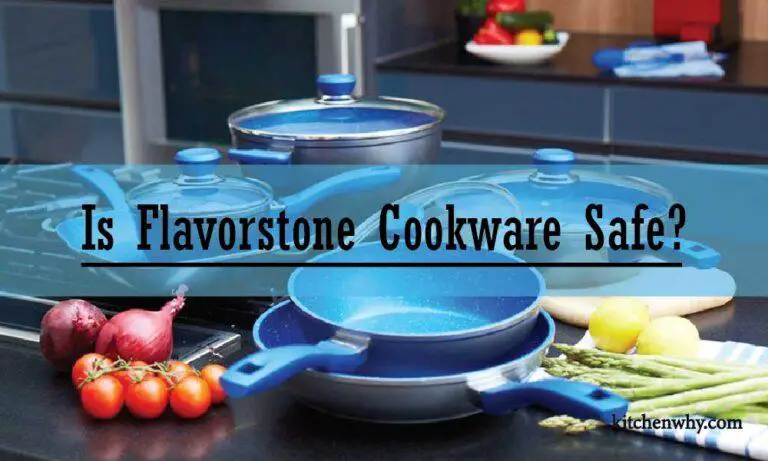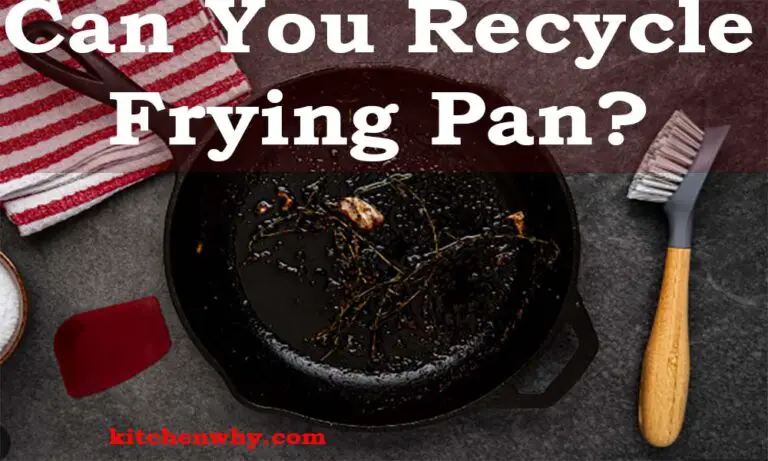Hard Anodized Vs Ceramic Cookware : Discover the Ultimate Kitchen Winner
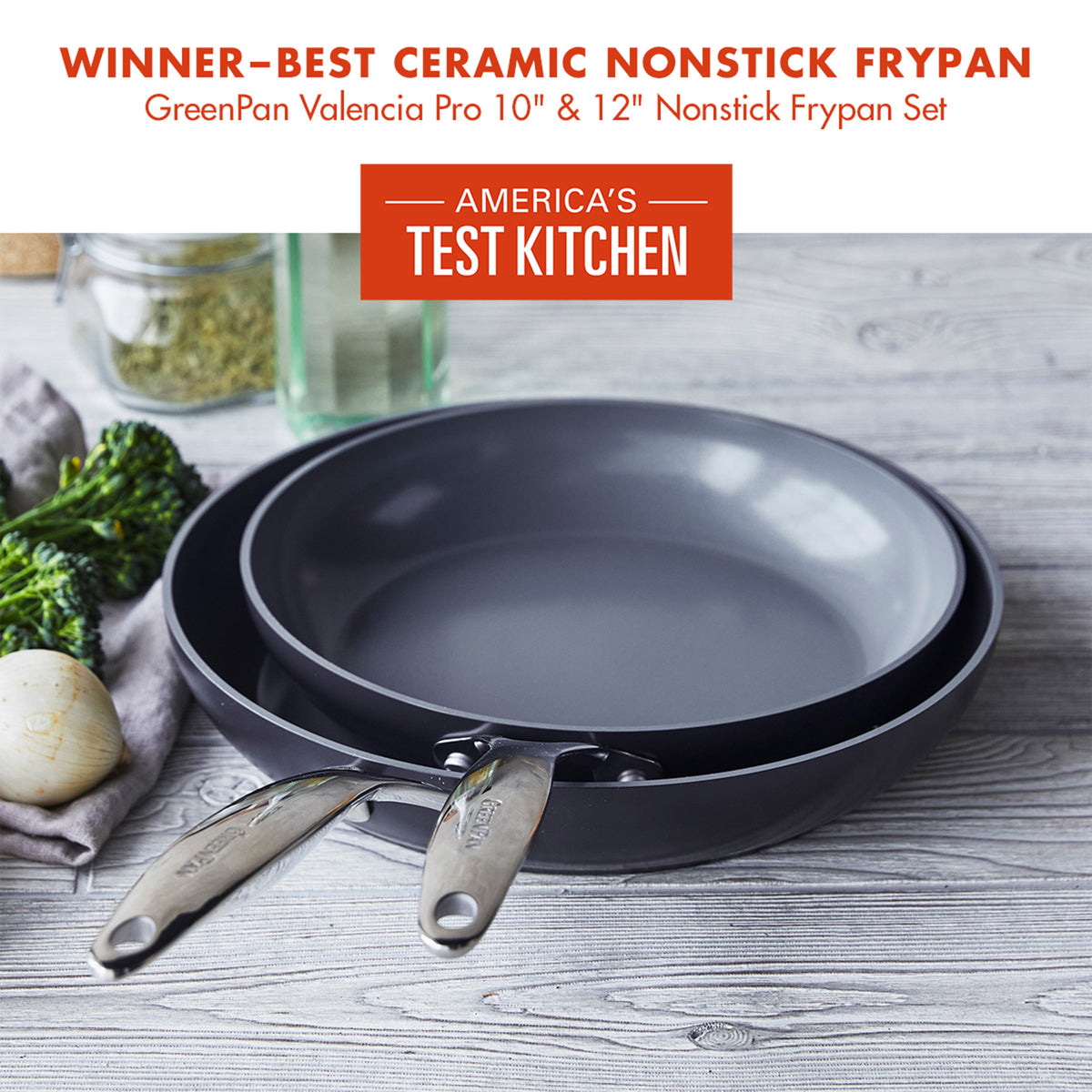
Hard anodized cookware is known for its durability and resistance to scratching, while ceramic cookware offers a nonstick surface and is easier to clean. When it comes to choosing the right cookware for your kitchen, the options can seem overwhelming.
Two popular choices are hard anodized and ceramic cookware. Both types have their own unique benefits and features that make them appealing to different cooks. Understanding the differences between hard anodized and ceramic cookware can help you make an informed decision about which one is right for you.
In this article, we will compare hard anodized vs ceramic cookware in terms of durability, nonstick properties, heat distribution, and maintenance. By the end, you’ll have a better understanding of these cookware materials and be able to decide which one suits your cooking style and needs.

Credit: www.amazon.com
Understanding Hard Anodized Cookware
Hard Anodized Vs Ceramic Cookware
When it comes to choosing the right kind of cookware for your kitchen, the options seem endless. From stainless steel to non-stick, each type has its own advantages and drawbacks. In this blog post, we will explore the world of hard anodized cookware and its benefits for everyday cooking.
Definition And Explanation Of Hard Anodized Cookware
- Hard anodized cookware is made by treating aluminum with an electrochemical process, resulting in a hard, durable surface that is resistant to scratches and abrasions.
- The process involves immersing the aluminum in a sulfuric acid bath and applying an electrical current to create an oxide layer on the surface, making it non-reactive and non-stick.
- This type of cookware is known for its exceptional heat distribution and retention properties, ensuring even cooking and preventing hot spots.
Benefits Of Using Hard Anodized Cookware In The Kitchen
- Durability: Hard anodized cookware is incredibly durable and resistant to wear and tear, making it a long-lasting investment for your kitchen.
- Non-stick surface: The anodized coating provides a non-stick surface, reducing the amount of oil or fat needed for cooking and making cleanup a breeze.
- Even heat distribution: The aluminum core allows for excellent heat conductivity, ensuring that your food cooks evenly without burning or sticking.
- Versatility: Hard anodized cookware is compatible with all cooktops, including gas, electric, and induction, making it suitable for any kitchen setup.
- Easy maintenance: With its non-reactive and non-stick surface, hard anodized cookware is easy to clean and resistant to staining. It can also withstand higher temperatures, making it perfect for high-heat cooking methods.
Factors To Consider When Choosing Hard Anodized Cookware
- Price: Hard anodized cookware can vary significantly in price, so it’s important to consider your budget before making a purchase.
- Quality: Look for reputable brands that offer high-quality hard anodized cookware. Check customer reviews to ensure durability and performance.
- Cooking needs: Consider the type of cooking you do most frequently and choose cookware that suits those needs, whether it’s a specific pot size or the number of pans included in a set.
- Handles and lids: Opt for cookware with comfortable and secure handles that stay cool during cooking. Additionally, choose lids that fit snugly to retain heat and moisture.
- Maintenance: Some hard anodized cookware is dishwasher safe, while others require handwashing. Consider your preferences and lifestyle when choosing the right maintenance level for you.
Hard anodized cookware is an excellent choice for those seeking durability, versatility, and easy cooking and cleaning. By understanding its definition, benefits, and factors to consider, you can make an informed decision when selecting your next set of cookware. Happy cooking!
The Advantages Of Ceramic Cookware
Ceramic cookware has become increasingly popular among home cooks and professional chefs alike. With its sleek and modern appearance, it adds a touch of elegance to any kitchen. But ceramic cookware isn’t just about style – it also offers a range of advantages that make it a great addition to your culinary arsenal.
Definition And Explanation Of Ceramic Cookware:
- Ceramic cookware is made from clay that has been fired at high temperatures, resulting in a hard, durable surface. This surface is then coated with a ceramic glaze, which not only enhances its aesthetic appeal but also provides a non-stick cooking surface.
- The ceramic coating is typically free from potentially harmful substances such as pfoa and ptfe, commonly found in traditional non-stick coatings, making it a healthier option for cooking.
Benefits Of Using Ceramic Cookware In The Kitchen:
- Even heat distribution: Ceramic cookware distributes heat evenly across the cooking surface, allowing for consistent cooking results and preventing hot spots.
- Non-stick surface: The ceramic coating provides a naturally non-stick surface, reducing the need for excessive oil or butter when cooking. This not only promotes healthier cooking but also makes cleanup a breeze.
- Easy to clean: Ceramic cookware is generally dishwasher safe, making cleanup quick and convenient. The non-stick surface also prevents food from sticking, further simplifying the cleaning process.
- Versatility: Ceramic cookware can be used on various heat sources, including stovetops, ovens, and even grills. It is also oven-safe, allowing for seamless transitions between cooking methods.
- Retains flavors: The non-reactive nature of ceramic cookware ensures that it does not affect the taste or color of your food, allowing you to enjoy the true flavors of your culinary creations.
- Durability: With proper care, ceramic cookware can last for years. It is scratch-resistant, stain-resistant, and resistant to high temperatures, making it a long-lasting investment.
Factors To Consider When Choosing Ceramic Cookware:
- Quality: Look for ceramic cookware made from high-quality materials to ensure durability and performance. Check for certifications and brands known for their expertise in ceramic cookware.
- Safety: Ensure that the ceramic coating used is free from harmful chemicals, such as pfoa and ptfe. This ensures a healthier cooking experience and minimizes the risk of chemical exposure.
- Maintenance: Consider the care instructions and maintenance requirements of the ceramic cookware you are considering. Some may require handwashing or specific cleaning products to preserve the integrity of the ceramic coating.
- Cooking style: Evaluate your cooking needs and choose ceramic cookware that suits your preferred cooking methods. Consider factors such as size, shape, and compatibility with different heat sources.
Ceramic cookware offers a range of advantages, from its non-stick surface to its versatility and even heat distribution. When choosing ceramic cookware, consider factors such as quality, safety, maintenance, and your cooking style. With the right choice, you can enjoy the benefits of ceramic cookware for years to come.
Hard Anodized Cookware Vs Ceramic Cookware: A Detailed Comparison
When it comes to choosing cookware, durability and longevity are crucial factors to consider. In this section, we will evaluate the durability and longevity of both hard anodized cookware and ceramic cookware, giving you a comprehensive understanding of their performance.
Durability And Longevity
Hard anodized cookware:
- Hard anodized cookware is made by subjecting aluminum to an electrochemical process, making it extremely durable and resistant to scratches, dents, and corrosion.
- The hard anodized surface is non-reactive, eliminating the risk of leaching any harmful substances into your food.
- With proper care, hard anodized cookware can last for many years, making it a great investment for your kitchen.
Ceramic cookware:
- Ceramic cookware is crafted by applying a ceramic-based coating to a metal body, resulting in a smooth, non-stick surface.
- While ceramic cookware is generally durable, it is more prone to scratching, chipping, and wear over time.
- The longevity of ceramic cookware largely depends on the quality of the coating and how well it is maintained.
Heat Conduction And Distribution
Hard anodized cookware:
- Hard anodized cookware offers excellent heat conduction and distribution, ensuring even cooking and preventing hot spots.
- The aluminum core of hard anodized cookware efficiently transfers heat, allowing for precise temperature control while cooking.
Ceramic cookware:
- Ceramic cookware also provides good heat conduction, but it may not be as efficient as hard anodized cookware.
- Some ceramic cookware brands use an aluminum core to enhance heat distribution, improving overall cooking performance.
Non-Stick Properties
Hard anodized cookware:
- Hard anodized cookware is famous for its exceptional non-stick properties, requiring minimal oil or fat when cooking.
- The non-stick surface makes it easy to release food and simplifies the cleaning process.
- However, over time, the non-stick coating on hard anodized cookware may wear off, reducing its effectiveness.
Ceramic cookware:
- Ceramic cookware also boasts a non-stick surface, allowing for healthier cooking with less oil or butter.
- The ceramic coating is more prone to wear and tear compared to hard anodized cookware, so proper care is essential to maintain its non-stick properties.
Maintenance And Care
Hard anodized cookware:
- Hard anodized cookware is generally easy to clean, as food particles do not stick to the surface.
- It is dishwasher safe, but handwashing with non-abrasive materials is recommended to prolong its lifespan.
- Avoid using metal utensils to prevent scratching the non-stick surface.
Ceramic cookware:
- Ceramic cookware requires gentle washing by hand, as harsh scrubbing or abrasive materials can damage the coating.
- Wooden or silicone utensils should be used to avoid scratching the ceramic surface.
- Although some ceramic cookware is dishwasher safe, handwashing is ideal to maintain its longevity.
Health And Safety Considerations
Hard anodized cookware:
- Hard anodized cookware is considered safe for regular use, as long as the surface is intact and undamaged.
- It does not leach chemicals into food, providing peace of mind when cooking.
Ceramic cookware:
- Ceramic cookware is generally safe for cooking, but it is essential to choose high-quality brands to ensure the absence of harmful substances in the coating.
- Avoid using ceramic cookware with chipped or cracked coatings, as it may release toxins into your food.
Both hard anodized and ceramic cookware have their own strengths and considerations. Hard anodized cookware excels in terms of durability, heat conduction, and non-stick properties, while ceramic cookware offers a smooth non-stick surface and ease of maintenance. Careful consideration of your cooking needs and preferences will help you determine the best option for your kitchen.
The Ultimate Kitchen Winner: Making The Decision
If you’re in the market for new cookware, you’ve probably come across the debate between hard anodized and ceramic cookware. Both options have their advantages and disadvantages, making it challenging to choose the ultimate kitchen winner. However, by considering personal preferences and cooking habits, as well as summarizing the pros and cons of each, you can make an informed decision.
Considering Personal Preferences And Cooking Habits
To determine which cookware is best for you, it’s essential to consider your personal preferences and cooking habits. Here are a few key points to keep in mind:
- Heat conduction: Hard anodized cookware tends to have better heat conduction, ensuring food cooks evenly. On the other hand, ceramic cookware has slower heat conduction, which can be advantageous for delicate dishes.
- Durability: Hard anodized cookware is generally more durable and resistant to scratches, making it a great investment for long-term use. Ceramic cookware, while delicate, can still provide adequate durability if handled with care.
- Non-stick properties: Hard anodized cookware often comes with non-stick coatings, which can make cooking and cleaning a breeze. Ceramic cookware, while not always non-stick, can develop a natural non-stick surface over time.
- Versatility: Hard anodized cookware is compatible with various stovetops, including gas, electric, and induction. Ceramic cookware is usually suitable for most stovetops, with some specific sets designed specifically for induction.
Summarizing The Pros And Cons Of Hard Anodized And Ceramic Cookware
Before declaring the ultimate kitchen winner, let’s quickly summarize the pros and cons of both hard anodized and ceramic cookware:
Hard Anodized Cookware Pros:
- Excellent heat conduction for even cooking
- Durable and scratch-resistant
- Often equipped with non-stick coatings
- Compatible with various stovetops
Hard Anodized Cookware Cons:
- Relatively more expensive compared to ceramic cookware
- Not always dishwasher safe
- Can be heavier and bulkier
Ceramic Cookware Pros:
- Provides a unique cooking surface that enhances the flavors of dishes
- Natural non-stick properties over time
- Lightweight and easy to handle
- Compatible with most stovetops
Ceramic Cookware Cons:
- Requires gentle handling to avoid chipping or cracking
- Can be more prone to staining
- Limited heat conduction compared to hard anodized cookware
Declaring The Ultimate Kitchen Winner Based On The Comparison And Individual Needs
Based on the comparison and individual needs, it’s clear that there is no definitive winner between hard anodized and ceramic cookware. Both options have their strengths and weaknesses, making them suitable for different situations.
If you prioritize even heat conduction, durability, and non-stick properties, hard anodized cookware might be the better choice for you. On the other hand, if you value a unique cooking surface, lightweight design, and versatility in the kitchen, ceramic cookware may be more suitable.
Ultimately, the best decision comes down to your personal preferences, cooking habits, and budget. Consider the pros and cons mentioned above before making your purchase, ensuring that the cookware you choose aligns with your needs and enhances your cooking experience.
Frequently Asked Questions On Hard Anodized Vs Ceramic Cookware
Is Hard Anodized Cookware Safe For Cooking?
Yes, hard anodized cookware is safe for cooking as it is non-reactive and does not release harmful chemicals or flavors into the food.
How Long Does Ceramic Cookware Last?
Ceramic cookware can last for several years if used and cared for properly, but it may chip or crack over time with heavy use.
Which Type Of Cookware Is More Durable?
Hard anodized cookware is generally considered more durable due to its tough coating, making it resistant to scratches and corrosion.
Does Ceramic Cookware Require Special Care?
Ceramic cookware requires gentle handling and should not be used with metal utensils to avoid scratching the surface. It is also recommended to hand wash them instead of using a dishwasher.
Is One Type Of Cookware Better For Heat Distribution?
Both hard anodized and ceramic cookware provide even heat distribution, but hard anodized cookware may have a slight edge in terms of heat retention and conductivity.
Conclusion
To sum up, both hard anodized and ceramic cookware offer their own set of advantages and disadvantages. Hard anodized cookware is known for its exceptional durability and non-stick properties, making it perfect for daily cooking. On the other hand, ceramic cookware is prized for its eco-friendly and non-toxic nature, ensuring safe and healthy meals for you and your family.
While hard anodized cookware is better suited for high-heat cooking and can withstand metal utensils, ceramic cookware is more delicate and may require gentle handling. Ultimately, the choice between the two will depend on your cooking preferences, budget, and lifestyle.
Whichever option you choose, ensure that you follow proper care and maintenance instructions to extend the lifespan of your cookware. So, as you embark on your culinary journey, take into consideration the features that matter most to you and enjoy the delightful experience of cooking with the right cookware for your needs.

